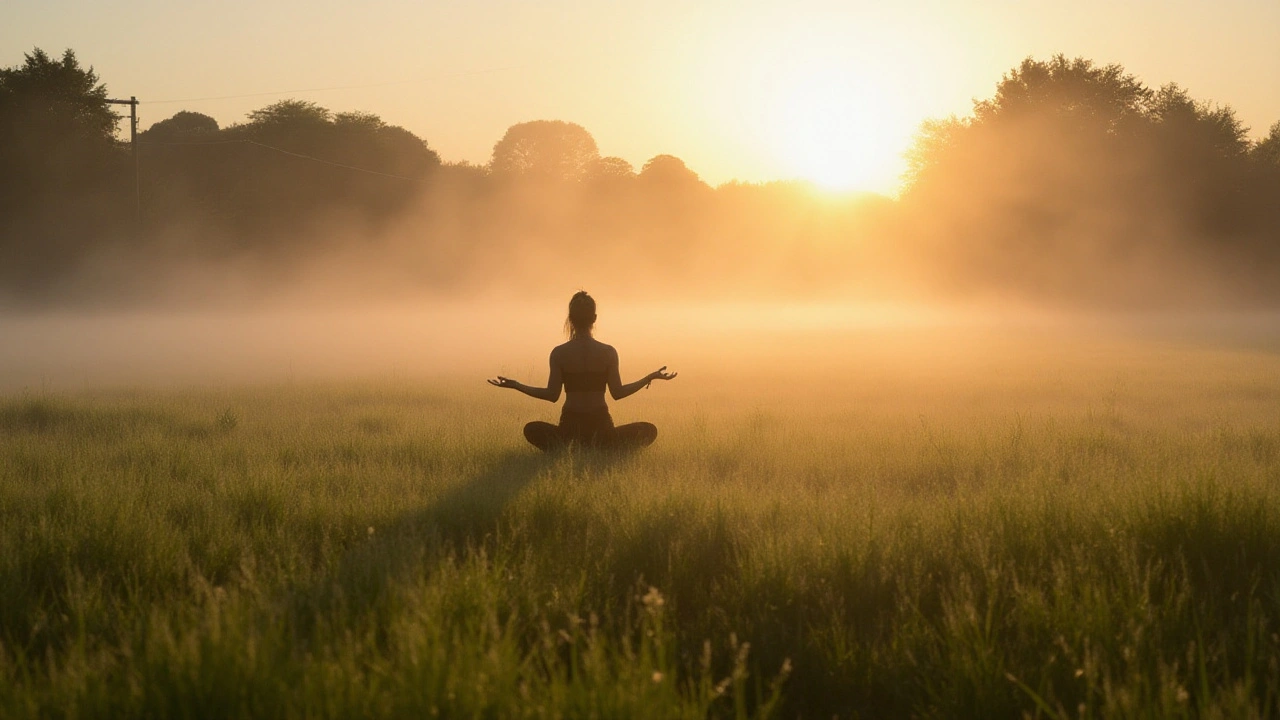Feeling calm isn’t about escaping life. It’s about handling it with less noise in your head. Small, practical steps change how you react to stress, let you sleep better, and help you make clearer decisions. Pick one habit and try it for a week—small wins compound fast.
Breathe with purpose. Try a 4-4-6 pattern: inhale 4 seconds, hold 4, exhale 6. Do it for one minute before a meeting or right after waking. It lowers your heart rate and clears your head immediately.
Move your body. A short walk, a few stretches, or light cardio resets your nervous system. Even five minutes outside reduces tension better than scrolling your phone. If you’re busy, break movement into two-minute bursts through the day.
Use mindful eating. Notice textures, flavors, and pace when you eat. This slows stress-driven snacking and helps you enjoy food more. Simple swaps—like a protein-rich snack or green tea—keep energy steady and cut anxiety spikes.
Create tiny routines. A short bedtime ritual—dim lights, no screens, a warm drink—signals your brain it’s time to unwind. A consistent morning routine gives you control before the day’s chaos starts.
Limit the noise. Reduce notifications and set two daily check-ins for email or news. Constant alerts keep your stress levels high. Turning off nonessential buzz frees up mental space and reduces reactive thinking.
Try short guided practices. Five minutes of guided mindfulness or a body scan can break stress cycles. Apps or quick audio guides work well at a desk or before sleep. If sitting still doesn’t fit, try movement-based options like short yoga flows or creative arts—drawing or simple music exercises calm the mind in a different way.
Experiment with biofeedback or tracking. Simple heart-rate apps and wearable feedback help you see how breathing or posture changes your body. That instant feedback makes calm a skill you can practice, not a vague idea.
Watch your gut. Stress and digestion talk to each other. Eating regular, balanced meals and keeping hydration steady reduces mood swings tied to blood sugar or digestion. Small dietary choices—healthy breakfasts, balanced snacks—support steady energy and clearer thinking.
Use travel and nature when you can. Short trips or even a day in a new setting reset perspective and reduce rumination. You don’t need a week-long vacation—changing the scene for a few hours helps your brain recover.
When calm doesn’t come easily, reach out. If anxiety or intrusive worries keep returning, a coach, therapist, or medical provider can help you build a plan. Peace of mind is a skill. With the right tools and steady practice, you can grow it—one small habit at a time.

Finding calmness in today’s fast-paced world can be challenging, yet it's essential for overall well-being. This guide explores practical strategies to cultivate peace in daily life by delving into mindfulness practices, relaxation techniques, and lifestyle adjustments. It highlights how reconnecting with nature, embracing minimalism, and incorporating mindful habits can significantly impact your state of mind. With actionable tips and insights, this guide aims to help you master calmness and enhance your sense of tranquility.
Read More